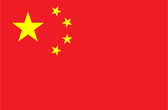
Call 0330 880 3600 Calls may be monitored or recorded. Opening Times.
- TRAVEL INSURANCE
- COVID-19 COVER
- More Options
- Help & Advice
- Existing Customers

Call 0330 880 3600 Calls may be monitored or recorded. Opening Times.

Need help?
UK Customer Services0330 880 3600*
Open Monday to Friday 9:00am to 6pm, Saturday 8:30am to 4pm and closed Sundays.
*Calls are recorded for training and quality purposes.

Official name:People’s Republic of China
Capital city: Beijing
Official language: Mandarin, Cantonese, Shanghainese, Hokkien, Hakka
Population: Around 1.4 billion
Currency: Renminbi (yuan, CNY)
Time zone: GMT+8
Driving side: Right
Climate: Deserts in the north and west, temperate central plains, subtropical conditions in the south, and alpine climates on the Tibetan Plateau
China, the world’s most populous country, combines a long and influential history with rapid modernisation. From ancient dynasties to today’s economic powerhouse, it spans vast geography and cultures. Beijing is the political and cultural centre, Shanghai the financial hub, and Xi’an home to the Terracotta Army, while rural landscapes range from rice paddies to high mountains. Tourists are drawn to iconic sites like the Great Wall and the Forbidden City, but also to the vibrant food, fast-growing cities, and natural wonders such as the Yangtze River and karst landscapes of Guilin.
China borders 14 countries, including Russia, India, and Vietnam, and stretches across nearly 9.6 million square kilometres, making it the third-largest country in the world. Its terrain is diverse, from the Gobi and Taklamakan deserts to the Himalayan mountain range, where Mount Everest (8,848m) marks the world’s highest point. Much of western China is rugged and sparsely populated, while the eastern seaboard is home to fertile plains and the majority of the population. The country is prone to earthquakes, typhoons, flooding, and droughts.
China’s main international gateways include Beijing Capital International Airport, Shanghai Pudong, and Guangzhou Baiyun, with many other airports serving domestic and regional routes. High-speed rail has transformed internal travel, with modern bullet trains linking most major cities at speeds up to 350 km/h. While major cities are well connected, remote western provinces may still require long road or domestic flight journeys. The country’s size means travel times can be significant. Tourism ranges from modern metropolises to UNESCO World Heritage sites, with increasing interest in eco-tourism and cultural exploration. Visitors should be prepared for language barriers outside large cities and should remain cautious of scams and petty theft in tourist areas.
Most visitors, including UK nationals, require a visa to enter China, usually obtained in advance through a Chinese embassy or consulate. Tourist visas are typically issued for stays of up to 30 days. Visitors to regions such as Tibet require additional permits, often only available through authorised travel agencies. Passports must be valid for at least six months, and proof of onward or return travel may be requested. The Chinese Embassy in London and the British Embassy in Beijing offer consular assistance.
The official currency is the renminbi (RMB), also known as the yuan (CNY). Cash is still widely used, though mobile payment apps such as WeChat Pay and Alipay dominate everyday transactions, even for small purchases. Foreign credit and debit cards are accepted in major hotels, airports, and some large retailers but less so in smaller shops and rural areas. ATMs are common in cities. Travellers should exchange money at official banks or exchange counters, as the yuan is not freely traded outside China.
Medical facilities in major cities are generally of good standard, though rural areas can be very limited. International hospitals are available in Beijing, Shanghai, and Guangzhou, but treatment often requires upfront payment. Air pollution is a recurring issue in northern cities such as Beijing, particularly in winter. Tap water is not safe to drink, so bottled or boiled water is recommended. Vaccinations against hepatitis A and typhoid are advisable, and travellers heading to rural areas should consider rabies and Japanese encephalitis vaccines. Malaria is a risk in some southern provinces, though not in major cities. Comprehensive medical insurance, including cover for medical evacuation, is essential.